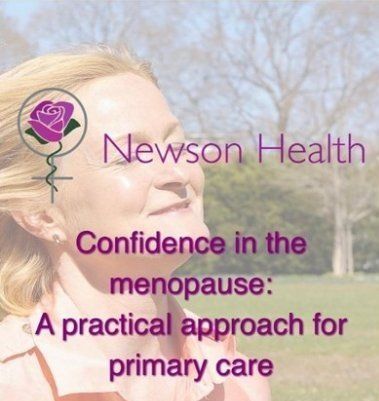Menopause is a natural stage in a woman’s life that marks the end of her reproductive years. While it is an inevitable and normal transition, it can bring about a range of physical and emotional changes that may be challenging to navigate. However, with the right knowledge and tools, women can confidently tackle this phase and embrace the new possibilities it brings.
Understanding the Menopausal Journey
Menopause typically occurs in women between the ages of 45 and 55, although the exact timing varies from person to person. It is preceded by perimenopause, which can last anywhere from a few months to several years. During this time, hormonal fluctuations can lead to irregular periods, sleep disturbances, hot flashes, and mood swings.
By understanding the various stages of menopause, women can better prepare themselves for the changes that lie ahead. Staying well-informed and seeking support from healthcare professionals and loved ones can alleviate anxiety and provide a strong foundation for navigating this journey.
Physical Changes and Self-Care
Menopause brings about significant physical changes in a woman’s body. Estrogen levels decline, leading to symptoms such as hot flashes, night sweats, vaginal dryness, and a decrease in bone density, increasing the risk of osteoporosis.
To manage these physical changes and maintain optimal well-being, self-care becomes paramount. Regular exercise, such as weight-bearing activities, can help strengthen bones and reduce the risk of osteoporosis. Engaging in activities like yoga and meditation can alleviate stress and promote mental clarity. Additionally, a balanced diet rich in calcium and vitamin D can support bone health.
Managing Emotional Well-being
Menopause can also impact a woman’s emotional well-being. Hormonal changes can contribute to mood swings, irritability, anxiety, and even depression. It is crucial for women to prioritize their mental health during this time.
Openly discussing feelings and concerns with loved ones can provide emotional support. Seeking therapy or counseling can also be beneficial, as it offers a safe space to explore and address any emotional challenges. Practicing stress-management techniques such as deep breathing exercises, mindfulness, and engaging in hobbies can promote a positive mindset.
Hormone Replacement Therapy
In certain cases, women may opt for hormone replacement therapy (HRT) to manage menopausal symptoms. HRT involves taking medications that contain hormones like estrogen and progesterone, which can help alleviate hot flashes, vaginal dryness, and other physical discomforts.
However, it is essential to consult with a healthcare professional before starting HRT. They can assess the risks and benefits based on an individual’s medical history and guide them through the process. Regular check-ups and adjustments in medication dosage, if necessary, are also crucial for monitoring the effectiveness of HRT.
Support Groups and Community
Menopause can sometimes feel isolating, as women may fear being misunderstood or not having anyone to share their experiences with. However, connecting with others who are going through similar journeys can be immensely helpful.
Joining menopause support groups, either online or in-person, can provide a sense of community and a platform to discuss concerns, ask questions, and share advice. Talking openly with others who have navigated or are currently navigating menopause can foster a sense of empowerment and resilience.
Embracing the New Chapter
While menopause undoubtedly brings about changes and challenges, it also marks the beginning of a new chapter in a woman’s life. With children grown and careers potentially winding down, many women find themselves with newfound freedom and opportunities.
Embracing this phase with confidence means embracing self-discovery and self-care. Exploring new interests, pursuing hobbies, and setting personal goals can bring a renewed sense of purpose and fulfillment. Menopause can be a time of reinvention and growth, providing women with the ability to shape their lives in ways they may not have been able to before.
Conclusion
Menopause is a transformative phase in a woman’s life, both physically and emotionally. By understanding the journey, taking care of oneself, seeking support, and embracing the new possibilities, women can navigate menopause with confidence. Embracing this stage allows women to embark on a new chapter of self-discovery and growth, empowering them to lead fulfilling lives and make the most of this incredible journey.

